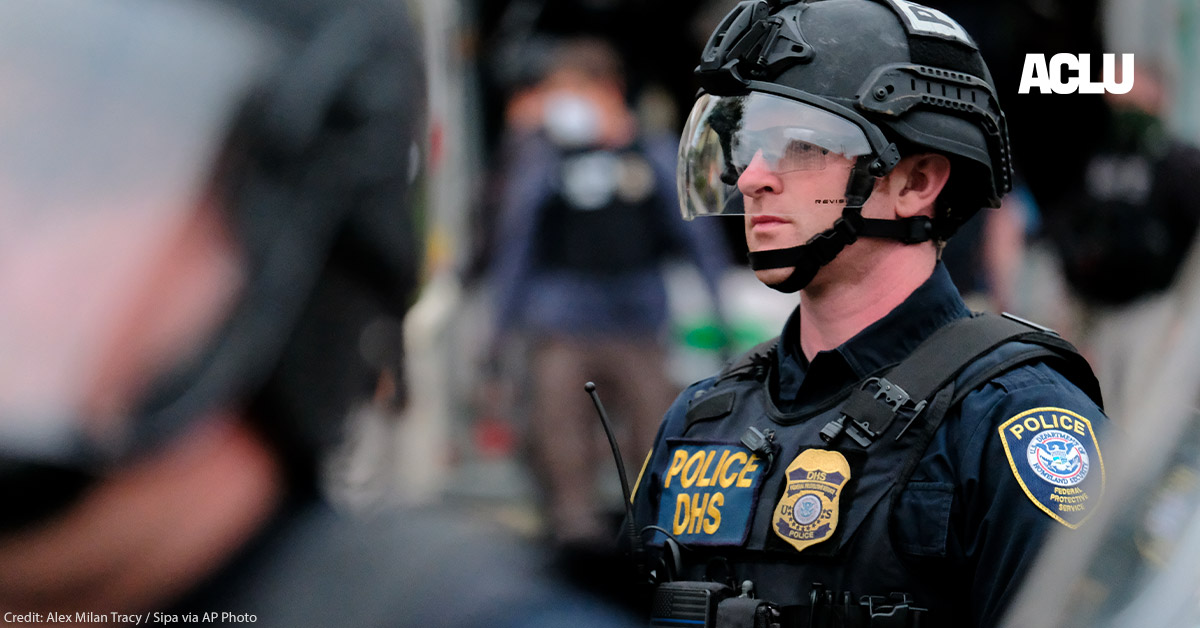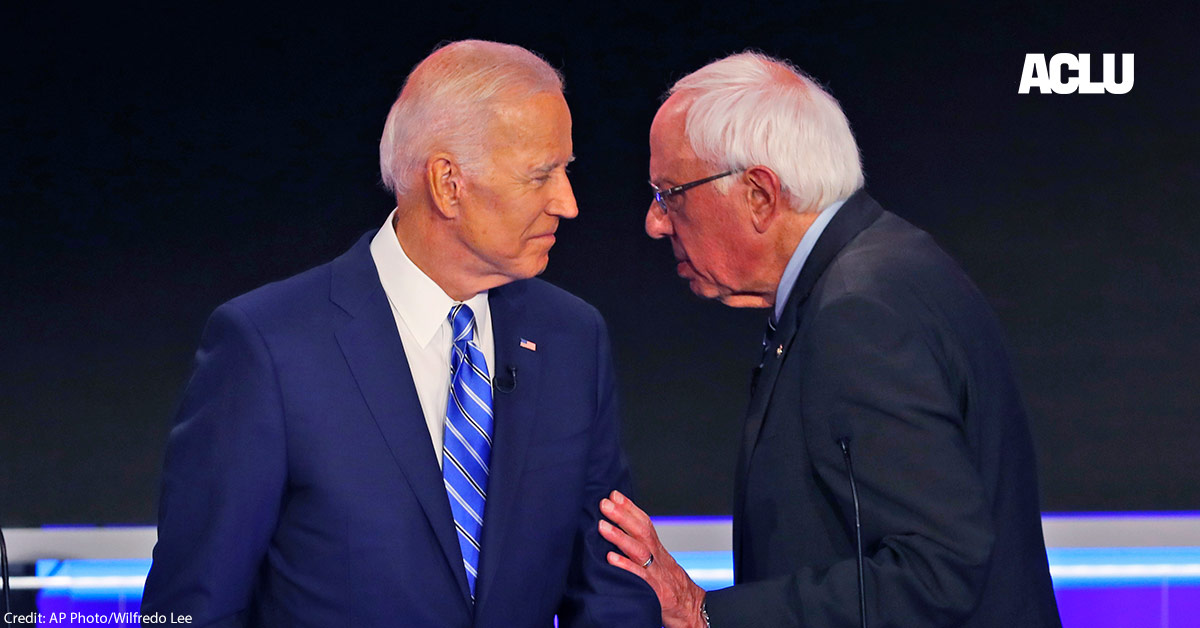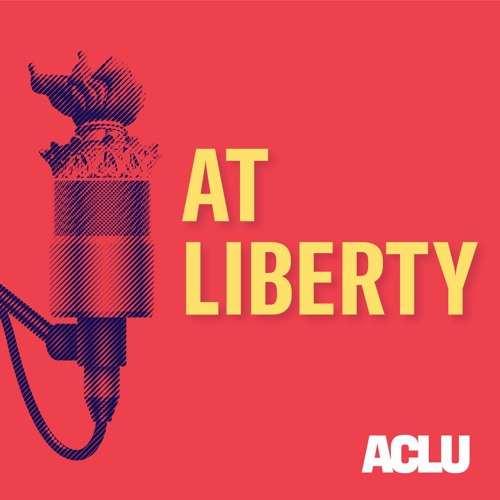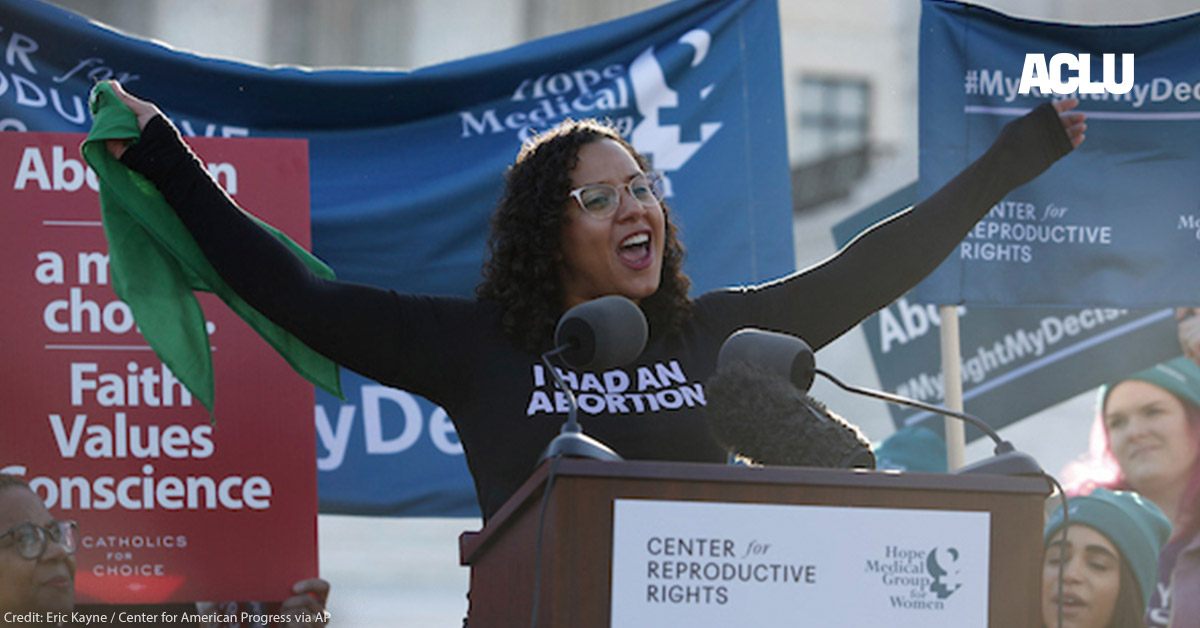By Madhuri Grewal, ACLU Federal Immigration Policy Counsel
The Trump administration is infamous for its attacks on immigrants and their loved ones. The administration’s cruelty has no bounds, as we’ve seen from its separation of families, obliteration of our historical commitment to protecting asylum seekers and migrant children, and exploitation of a global pandemic to advance the xenophobic dismantling of the immigration system. We are rightly horrified. For far too long and on far too many occasions, Congress has been funding this anti-immigrant agenda under the radar, with your taxpayer dollars. For years, we’ve pushed back, and now, Congress is listening with a scaled back funding proposal for the Department of Homeland Security — the arm of Trump’s deportation force.
We are inspired by the fierce, coordinated, and growing movement to divest from police forces across the country to put an end to racist policing and the epidemic of police violence in Black and Brown communities. This movement calls us to hold the system of immigration enforcement accountable too. We see similar surveillance, over-militarization, and violence inflicted on Black and Brown communities by the Department of Homeland Security. DHS was created after 9/11, and its sub-agencies Immigration and Customs Enforcement (ICE) and Customs and Border Protection (CBP) have been funded at record-breaking levels by Congress since their inception. DHS is funded more than all federal law enforcement agencies combined, and these agencies often collaborate with state and local law enforcement and funnel resources such as training, funding, and equipment to local police departments.
For the current year (Fiscal Year 2020), Congress doled out a whopping $14.7 billion for CBP — funding for mass surveillance of Black Lives Matter (BLM) protests and for countless abuses (including using emergency funds for dog food and dirt bikes, instead of food and medicine for detained children). ICE received $8.1 billion from Congress — your tax dollars funded drones used at BLM protests and to spread COVID-19 worldwide through continued deportations. Worse still, even with these exorbitant levels of funding, ICE and CBP have regularly raided other parts of the government, including FEMA during multiple hurricane seasons, to expand its detention regime and to build Trump’s border wall — even over Congress’s firm and clear objections. Although we are in the middle of a pandemic, the congressional appropriations process continues to move forward. Your voice, now more than ever, is critical.
On July 6, the House Appropriations, DHS Subcommittee released its DHS funding bill for Fiscal Year 2021. This is the first major step in a long and highly volatile process, and we can expect the bill to undergo significant changes in the Senate. But the House bill signals a major shift in how the Democratic-led House is approaching funding for the Department of Homeland Security. This shift didn’t happen overnight. Over the last two years, ACLU activists organized and spoke out, sending 71,000 messages and calls to Congress demanding that their representatives cut funding for the agency. Because of that work, the House of Representatives is poised to pass a bill that begins the long overdue process of divesting from ICE and CBP.
Perhaps most notably, the House bill cuts over $1 billion for ICE Enforcement and Removal Operations (ERO) — the ICE subdivision responsible for detention, raids, and deportations. ERO just launched an indefensible “Citizens Academy” to train ordinary civilians about how it arrests immigrants, including “defensive tactics, firearms familiarization, and targeted arrests.” (It is modeled after programs carried out by another division of ICE and by CBP.)
The significant cut to ERO includes reducing ICE detention by over 50 percent from the previous fiscal year. This is an unprecedented and overdue reduction, but there’s more: The bill also requires that ICE must not detain more than 10,000 immigrants on any given day during our current global pandemic, compared to the all-time high of over 55,000 during the Trump administration. And if this bill were signed into law today, family detention would be eliminated by the end of the year.
We’ve made progress in other areas, too. The bill rescinds $1.374 billion in border wall funding, citing Trump’s dubious emergency declaration and subsequent illegal diversion of funds for the wall from the Department of Defense. And moving forward, the bill severely restricts the ability of ICE and CBP to loot funding from other government agencies.
Yet our work is far from over. Even with these massive cuts in ICE detention, we would continue to see dangerous and unnecessary detention of immigrants by ICE and CBP. Most alarming, the bill still supports DHS grants for state and local law enforcement agencies, which can be repurposed by police to buy military-grade equipment and to collaborate with CBP. And it inexplicably increases funds for Homeland Security Investigations (HSI), an agency that is emblematic of Trump’s brutal immigration agenda, including working closely with local law enforcement to erroneously label immigrants as gang members and upend their lives.
While we will continue to fight for the strongest possible funding bill, with deeper cuts to harmful programs and more accountability and oversight, we are also energized by the progress you helped us achieve. The bill significantly reduces ICE detention, takes meaningful steps to hold ICE and CBP accountable for their wasteful spending, and rescinds money for Trump’s border wall. Congress is finally appreciating its immense “power of the purse” under the Constitution and its role in reining in Trump’s extremist agenda.



